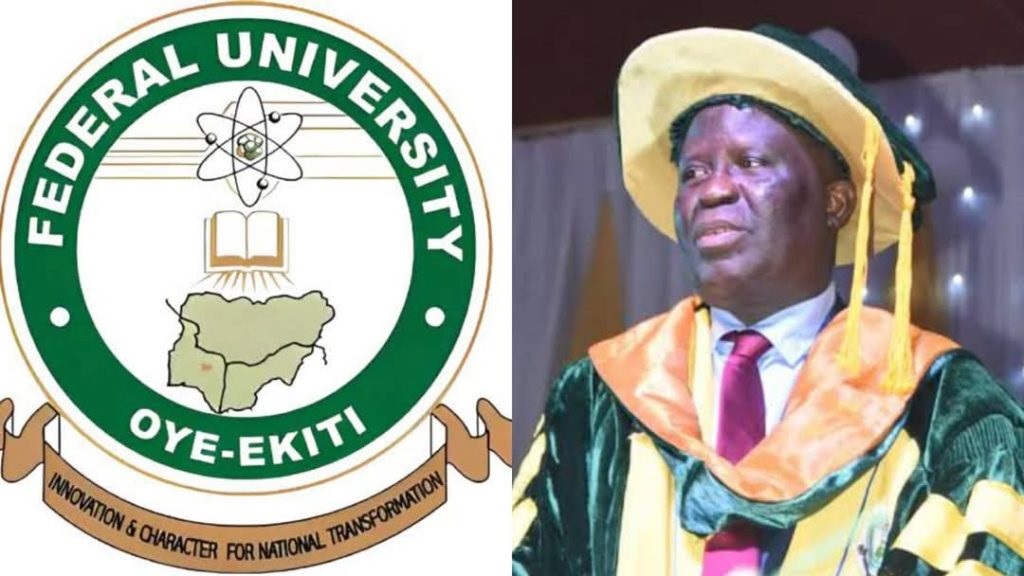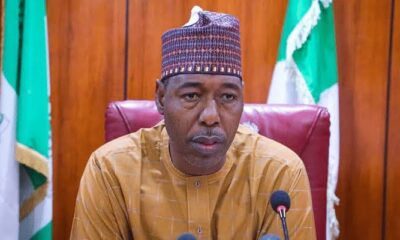News
Abolishing Death Penalty, Nigerians Will Decide – Deputy Speaker

By Gloria Ikibah
Deputy Speaker, House of Representatives, Rep. Benjamin Kalu, has said that the decision to abolish death penalty in Nigeria rests with the people.
Kalu who stated this during a visit by officials of the Death Penalty Project and the British High Commission to his office in Abuja on Thursday, stressed the need for open discussions and collaboration among stakeholders, as opinions on the issue vary widely.
He noted that over 130 countries have already abolished the death penalty, either in law or practice. However, in Nigeria, capital punishment is still allowed for crimes such as murder, armed robbery, and treason.
The Deputy Speaker said that the number of death row inmates highlights the need for reforms in the criminal justice system. As chairman of the Constitution Review Committee, he said the committee has been studying the moral, ethical, and practical aspects of the death penalty.
While no bill on the matter is currently before the House, Kalu stated that the committee is considering it, and a proposal could be brought forward soon for debate and public input.
News
Video: Woman Shares Her ‘Japa’ Experience, Claims Burkina Faso Is Preferable to Nigeria

A young Nigerian Lady who moved to Burkina Faso two years ago has sparked widespread attention online after sharing a heartfelt comparison of her life there versus her experience in Nigeria.
In a video that has quickly gone viral, she urged fellow Nigerians to stop advising her to come back home, emphasizing that despite being less developed, Burkina Faso offers a more livable environment in many ways.
She expressed deep appreciation for the leadership of Captain Ibrahim Traoré, under whose governance she said she has enjoyed a standard of living far better than what she had in Nigeria. The woman highlighted key benefits such as a more affordable cost of living, consistent electricity, and more effective governance as reasons for her satisfaction.
“Nigeria is better in what way? Burkina Faso is not so developed like Nigeria but are ten times better. I can go to the market with a thousand and buy food meant for four people. The government doesn’t mess around here; fuel hasn’t increased since I got here; electricity doesn’t go off and when it would for just 30 minutes, it would be announced on the radio,” she ranted.
The woman expressed her concerns about the lack of safety in Nigeria, pointing out that walking at night is dangerous in many areas. She also drew a comparison between President Bola Tinubu and the 36-year-old leader of Burkina Faso, stating that the people of Burkina Faso take pride in their president, unlike many Nigerians.
How will you compare the youngest president in Africa—Captain Ibrahim Traoré—to Tinubu? They are proud of their president here; how many people is proud of Tinubu there? If you go to market in Nigeria with N1000, you can only buy seasoning cubes,” she added.
Her remarks have elicited a range of reactions online. Some Nigerians align with her opinion, whereas others question her stance by mentioning the security problems that Burkina Faso encounters.
Watch the video below:
https://twitter.com/General_Somto/status/1911700545175175468?ref_src=twsrc%5Etfw
News
FUOYE VC suspended over sexual harassment allegations

The Vice-Chancellor of the Federal University Oye-Ekiti (FUOYE), Prof. Abayomi Sunday Fasina, has been suspended by the university’s Governing Council following serious allegations of sexual harassment brought against him by a senior official of the institution, Engr. Folasade Adebayo.
According to a report by SaharaReporters, the suspension came after the Minister of Education, Dr. Tunji Alausa, intervened in the matter, expressing deep dissatisfaction with the Council’s initial recommendations which reportedly ignored the substance of the harassment allegations and instead advised the complainant to apologise to the Vice-Chancellor.
A source disclosed: “The minister was very angry with the decision of the council. He was unhappy that the council tried to sweep the sexual harassment complaint under the carpet and rather told the complainant to apologise. He called the Chairman of the Governing Council, Senator Victor Ndoma-Egba (SAN), to register his displeasure.”
In response to the minister’s strong opposition, Senator Ndoma-Egba swiftly convened an emergency online meeting of the Governing Council at 2:00 PM on Monday, April 14, 2025. During this meeting, the Council resolved to suspend Prof. Fasina.
However, sources within the meeting revealed that Prof. Fasina pleaded with the Council to allow him to proceed on his accumulated leave instead of facing a formal suspension. The Council eventually granted this request, approving six months of leave.
“You know, as a Vice-Chancellor, if you wish to end your tenure early, especially within six months to the end of your term, you are permitted to proceed on your accumulated leave,” the source explained. “Although Fasina’s tenure is due to end in August, the Council has now asked him to proceed on that leave effective immediately.”
This decision was later confirmed through an official press statement issued by the university’s Registrar and Secretary to the Council, Mufutau A. Ibrahim. The statement read:
“The Governing Council of the Federal University Oye-Ekiti (FUOYE) at its 7th Emergency Meeting held online on Monday, 14th April, 2025, considered the request of the Vice-Chancellor, Prof. Abayomi Sunday Fasina, to proceed on his accumulated Annual and Research Leave and approved six (6) months, being 126 working days out of his total entitlements of 228 days with effect from today, Monday, 14th April, 2025.”
The statement further announced that Prof. Samuel Olubunmi Shittu, a Professor of Soil Science and the incumbent Deputy Vice-Chancellor (Academics), has been appointed as Acting Vice-Chancellor.
“In addition, the Governing Council appointed Prof. Olubunmi S. Shittu, the incumbent Deputy Vice-Chancellor, Academics, who is also the most senior of the three (3) Deputy Vice-Chancellors, as the Acting Vice-Chancellor of the University for a period of six (6) months with effect from today, Monday, 14th April, 2025.”
The suspension of Prof. Fasina has sparked strong reactions within Nigeria’s academic community, with many calling for a transparent and thorough investigation into the allegations. Stakeholders and rights groups have also urged the Federal Ministry of Education to ensure justice is served and to reinforce institutional safeguards to protect whistleblowers and victims of harassment in Nigerian universities.
News
Power Generation Companies Express Concern Over N4 Trillion Unpaid debts, Warn Imminent Shutdown

Nigeria’s electricity generation companies (GenCos) have raised the alarm over an impending collapse of their operations due to the crippling debt of over N4 trillion owed to them by the federal government.
The debt, comprising legacy obligations and unpaid subsidies for 2024, was severely undermining the power sector’s ability to function optimally.
The Board of Trustees chairman of the Association of Power Generation Companies (APGC), Col. Sani Bello (rtd), who made this known on Monday, said GenCos were currently owed N2 trillion for power supplied in 2024 and N1.9 trillion in legacy debts.
The companies noted that plants were being paid less than 30 per cent of monthly invoices for power supplied to the national grid.
The companies stated: “It is no more news that the power generation companies have continued to bear the brunt of the liquidity crisis in the Nigerian Electric Supply Industry (NESI).
“GenCos, on their part as responsible investors with patriotic zeal, have made large-scale investments and have continued to demonstrate absolute commitment by ramping capacities in line with their contract these over 10 years, amid system constraints, policies & regulations that are not investors friendly, increasing debts owed by the FGN without a clear financing plan, lack of firm contracts and a market without securitisation but based on best endeavours, thereby hampering future planning.
“Notwithstanding this and other severe difficulties the GenCos have battled with since takeover in 2013, they have kept to the terms of their contractual agreements by ramping up capacity, which has been largely constrained systemically.
“Against the backdrop of the many challenges facing the power sector in Nigeria, the crises from cash liquidity are on the top burner and have reduced GenCos ability to continue to perform their obligations, thereby threatening to undermine the Electricity value chain completely.
“The GenCos expectations of being settled through external support such as the World Bank PSRO has also been dampened due to other market participants’ inability to meet their respective distribution linked indicators (DLIs), enshrined in the Power Sector Recovery Program (PSRP).”
The GenCos added, “In light of the severity of the issues highlighted above, the GenCos are requesting that immediate and expedited action be taken to prevent national security challenges that may result from the failure of the GenCos to sustain steady generation of electricity for Nigerians.
“The 2024 collection rate has dropped below 30 per cent, and 2025 is not any better, severely affecting GenCos’ ability to meet financial obligations. Tax and Regulatory Challenges: High corporate income tax, concession fees, royalty charges, and new FRC compliance obligations are further straining GenCos’ revenue. GenCos are currently owed about N4 trillion (N2 trillion for 2024 and N1.9 trillion in legacy debts). No possible solutions, including cash payments, financial instruments, and debt swaps, are in sight.
“The 2025 government budget allocates only N900 billion, raising concerns about its adequacy to cover arrears and future payments. The power generated by GenCos have continued to be consumed in full without corresponding full payment, notwithstanding the commencement of the Partial Activation of Contracts in the NESI which took effect from July 1, 2022, the minimum remittance order, bilateral market declaration, waterfall arrangement, the risks of inflation, forex volatility with no dedicated window to cushion the effect of the forex impact, the supplementary MYTO order which leaves about 90% of GenCos monthly invoices unmet without a bankable securitisation, or financing plan. This situation has dire consequences for the GenCos and by extension the entire power value chain.”
The generation companies, which called for the implementation of payment plans to settle all outstanding GenCos invoices, observed that “the flow of money within the power industry is one of the fundamental problems preventing Nigerians from enjoying continued and sustainable improvement in electricity supply.”
-

 News17 hours ago
News17 hours agoJust in: Namibia Moves to Deport Over 500 Americans in Bold Visa Policy Shift
-

 News17 hours ago
News17 hours agoRivers women rally in support of state of emergency
-

 News12 hours ago
News12 hours agoYou must refund N300m, Rivers State tells NBA
-

 News24 hours ago
News24 hours agoZulum orders arrest, offers house, scholarship to abused boy in viral video
-

 Politics15 hours ago
Politics15 hours agoBwala accuses Senator Ndume of plans to defect from APC
-

 Foreign13 hours ago
Foreign13 hours agoUS orders 30-day registration for all foreign nationals or face jail, deportation
-

 News17 hours ago
News17 hours agoSoldiers rescue 16 kidnapped passengers in Plateau
-

 News24 hours ago
News24 hours agoOluwo raises alarm over brewing Osun-Oyo border dispute


















